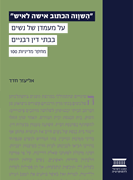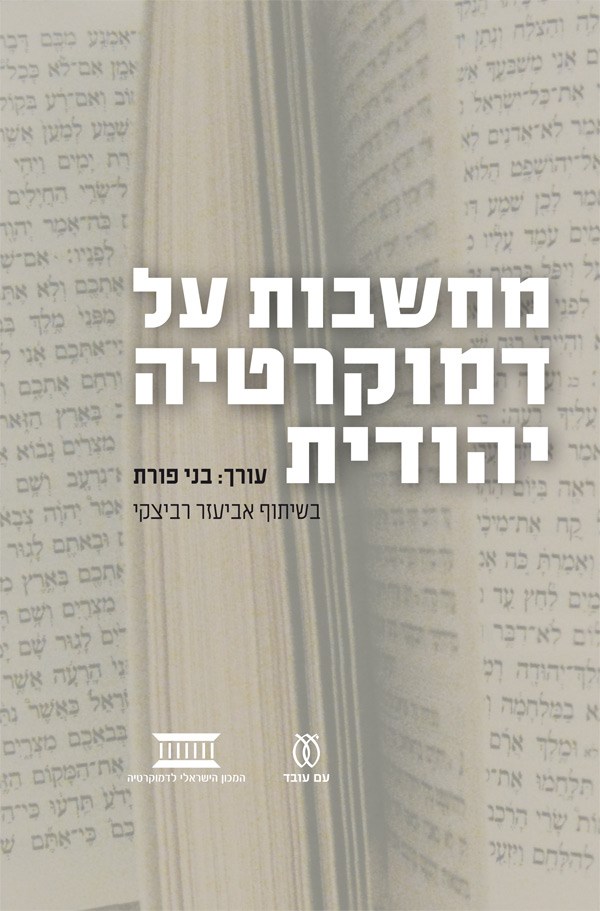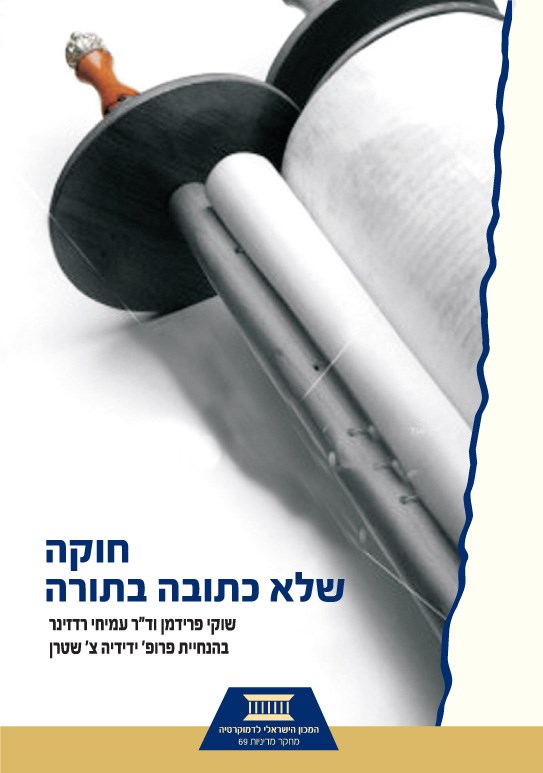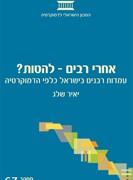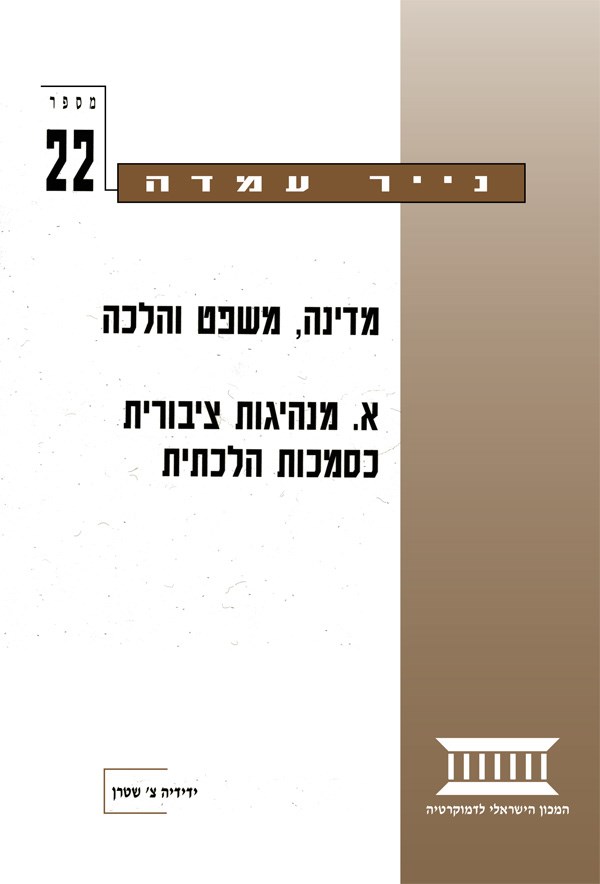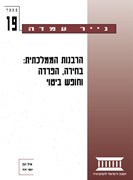

Publications Regarding The Rabbinate
Articles

A Small but Insufficient Victory for Female Torah Scholars
Written By: Ayala Goldberg
A recent Supreme Court decision rules that the Chief Rabbinate must allow women to take the Halakhic exams it administers for the purpose of ordaining rabbis. While this does not mean they will be ordained as rabbis, this is good news for women in their struggle for the value of their Torah study to be recognized.

The Procedure for Electing Israel's Chief Rabbis
Written By: Dr. Ariel Finkelstein
Elections for the Chief Rabbinate Council and the two chief rabbis (“the Chief Rabbinate elections”) will likely be announced in the near term. The present document suggests a number of fundamental changes to its membership, with the goal of making it more representative.

Jewish Public Opinion Regarding the Chief Rabbinate and the Elections for the Chief Rabbis
Written By: Dr. Ariel Finkelstein, Ayala Goldberg
The aim of this review is to present the views of the Jewish public in Israel regarding the institution of the Chief Rabbinate, based on the findings of an opinion survey that was conducted in May 2024.

The New Rabbis Law Includes a Number of Inherent Flaws
Written By: Dr. Ariel Finkelstein
Dr. Ariel Finkelstein warns that the proposed new "Rabbis Law" would weaken the standing of local communities, could lead to cronyism, reduce women's representation and more.

Israel’s Rabbinate Should Welcome These Kashrut and Conversion Reforms
Written By: Prof. Benjamin Porat
They do reduce the Rabbinate's centralized power, but in very different ways, which fundamentally upholds the rabbis' authority, rather than undermining it

Most Israelis Want Term Limits for Local Rabbis
Written By: Dr. Ariel Finkelstein
Most of the public support limiting local authority rabbis' term of service to five years and giving them the option to be re-appointed at the end of each term

Duplicate Kashrut Certifications and Excess Costs to Suppliers and Consumers
Written By: Dr. Ariel Finkelstein, Gabriel Abensour
88% of the products sold in supermarkets in Israel have duplicate kashrut certifications resulting in excess costs to both suppliers and consumers. Analysis by IDI experts Finkelstein and Abensour reveals why reform is overdue

Another Unnecessary War of the Jews
Written By: Dr. Shuki Friedman
Reinforcing the Rabbinate's monopoly on conversion to Judaism places unnecessary roadblocks before those who want to join the Jewish people and deepens the rift with the Diaspora

Turning Back the Clock on Religious Services
Written By: Dr. Ariel Finkelstein
The Israeli religious courts are being handed back to the ultra-Orthodox parties - will they adhere to professional standards?

Towards a New Covenant on Religion and State in Israel: Conference
At IDI's conference Former Defense Minister MK Avigdor Liberman said he will not advance the recruitment plan he had drafted with the Ministry of Defense. "Every 18-year-old will be required to enlist."

Towards a New Covenant on Religion and State in Israel
Written By: Dr. Shuki Friedman
After years of struggles over issues related to religion and state, we hereby agree to adopt a new approach, which will create a covenant to provide a new system of arrangements and agreements to strengthen the link between the Israeli public and the Jewish identity of the State of Israel.
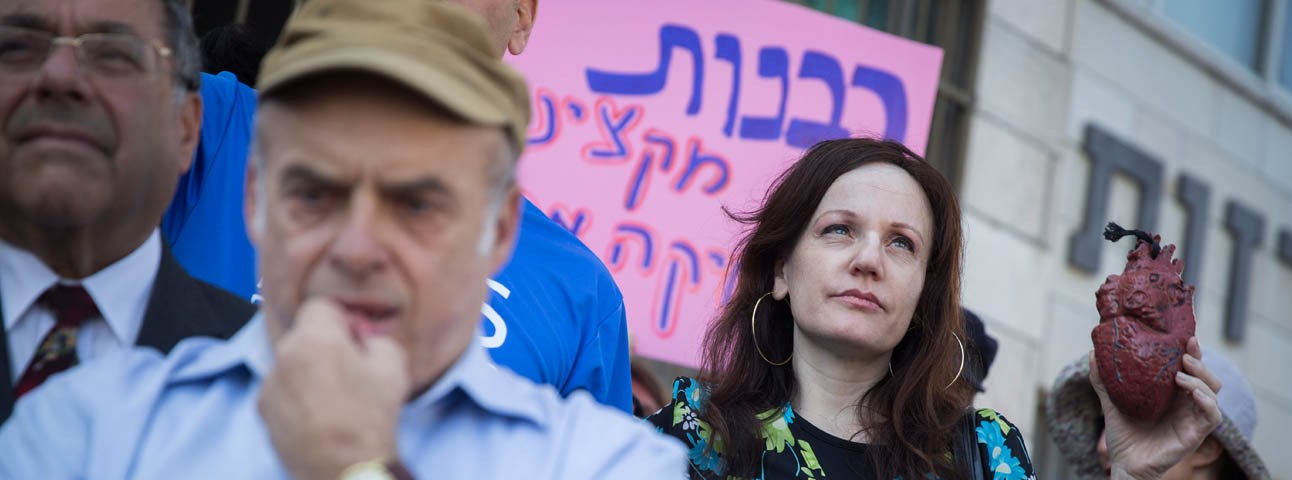
The Chief Rabbinate of Israel vs. the Jews
Written By: Dr. Shuki Friedman
Turning 1.2 million Israelis with FSU origins into a state-sanctioned punching bag is intolerable, and calls for radical and immediate change

When the Government Provides Religious Services
Written By: Dr. Shuki Friedman
Full separation of religion and state isn't possible, but why is the Chief Rabbinate in the kashrut business?

Kashrut Supervision Services Bill
IDI is calling to amend the Kashrut Supervision Bill, so that instead of creating an additional layer of intermediaries, the market will be open, transparent and regulated by Rabbinate authorized rabbis.

Jews Worldwide Must Resist The Power Grab Of Israel’s Chief Rabbinate
Written By: Dr. Shuki Friedman
Step by step, the Chief Rabbinate is turning itself into the central source of halakhic legitimacy not just within Israel’s borders but beyond them, and becoming a global force through securing its power all over the Jewish world.

Preserving the Rabbinate’s monopoly over the kashrut market: the consumer will be the one to pay
The Israel Democracy Institute on the Ministry of Finance and Rabbinate's decision to preserve the Rabbinate’s monopoly over the kashrut market in Israel: the consumer will be the one to pay

Time to Privatize the Kosher Certification System
In order to grant better, cheaper and friendlier kosher certification, we must privatize the kosher certification system, break up the Chief Rabbinate’s monopoly, and rely on the unwavering market of 70 percent of Israeli Jews in the state who eat kosher food.

Israel's Battle for Peace Between Religion and State
Written By: Yair Sheleg
The relationship between religion and state in Israel is stormy. Lately, it seems the ultra-Orthodox have launched a new offensive on several fronts. This op-ed was originally published by JNS.org.

The Kosher Monopoly
Written By: Dr. Shuki Friedman

Statement by IDI President Yohanan Plesner on the Advancement of the Mikveh Bill
Following today's advancement of the Mikveh Bill by the Knesset Plenum, IDI President Yohanan Plesner said, "The Mikveh Bill is not worthy of being included in the laws of Israel."

'666,000 People Cannot Register to be Married in Israel'
The Israel Democracy Institute's Dr. Shuki Friedman took part in a "Nation, Religion and State" coalition meeting under the oversight of Knesset Members (MKs) Aliza Lavie and Elazar Stern (Yesh Atid). The topic: Finding alternatives to marrying through the Israeli Rabbinate.
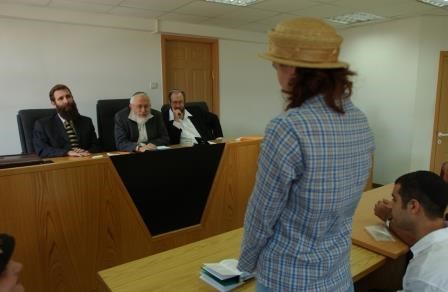
The End of the Chief Rabbinate?
Written By: Dr. Shuki Friedman
According to Dr. Shuki Friedman, the rabbinate's failure to provide adequate religious services caused the current trend towards privatization of religious services, which is creating a de-facto separation between religion and the state.
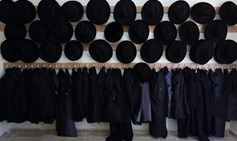
Israel Should Recognize Judaism's Main Denominations
Written By: Yohanan Plesner
IDI President Yohanan Plesner writes that Reform, Conservative, Orthodox, Reconstructionist and secular Jews are all members of the Jewish people. The Israeli government must grant equal recognition to the central movements within Judaism, including equal funding for all.

Keeping Kosher: By Faith, Not By Force
Written By: Dr. Shuki Friedman
To what extent should the Rabbinate interfere in a citizen's plate? Dr. Shuki Friedman, argues that kosher supervision should be based on trust not coercion, and warns that the attempt to preserve the Chief Rabbinate's monopoly on the kosher laws is a symptom of a larger problem.

Reinventing the Chief Rabbinate
Written By: Ayelet Libson
In an article in <em>The Jewish Week</em>, Ms. Ayelet Libson of IDI's Human Rights and Judaism project questions the role of the Israeli Chief Rabbinate and offers her view of what it could be.

The Fate of a Mamzer
Written By: Gitit Paz
In an article in The Jewish Week, Gitit Paz, a young scholar in IDI's Human Rights and Judaism project, discusses the status of mamzer in Jewish law and in contemporary Israel.

Did You See the Tears of the Oppressed?
Rabbi Dr. Benjamin (Benny) Lau, head of IDI's Human Rights and Judaism in Action project, remembers Rabbi Ovadia Yosef as a courageous halakhic decisor who championed the needs of the oppressed.
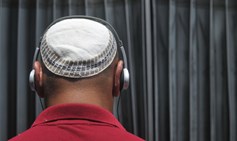
No to the Separation of Religion and State in Israel
Written By: Yair Sheleg
Should the American model of separation of church and state be applied to Israel? In an article in <em>The Jewish Week</em>, IDI's Yair Sheleg argues that Israel needs a unique model.

The Chief Rabbinate: A Religious Version of the State President
Written By: Yair Sheleg
In an op-ed in Maariv, Yair Sheleg argues that the current roles of the Israeli chief rabbinate should be split and the rabbinate should serve solely in its representative capacity in the future.

Conversion in Israel: From Bethlehem to Chelm to Sodom
Written By: Prof. Yedidia Z. Stern
IDI Vice President Prof. Yedidia Stern responds to the State Comptroller's findings on conversion in Israel and calls for a solution that will enable Israelis from the former Soviet Union to join the ranks of the Jewish people.

Do Not Exempt Religious Schools from Accessibility Requirements
Written By: IDI Website
In response to the preliminary passage of an amendment that would exempt religious educational institutions from complying with accessibility requirement, a group of leading Israeli rabbis appealed to Israel's elected officials and requested their intervention to prevent the exemption from applying to religious schools. Rabbi Shay Piron, who directs IDI's work in this field under the auspices of IDI's Human Rights and Judaism project, coordinated this important effort.

Religious Incitement: A Test Case for Freedom of Speech?
Written By: Prof. Yedidia Z. Stern
In an op-ed in Yedioth Ahronoth, IDI Vice President Yedidia Z. Stern responds to the proposed "Dov Lior Bill" and decries the possibility that members of the clergy—of any religion—be above the law and immune from prosecution for incitement to violence when their religious teachings may encourage criminal behavior.

Clear-Cut Racism or Complicated Relationship?
Written By: Yair Sheleg
Are the ostensibly anti-Arab bills under consideration by the Knesset, the “Rabbis’ Letter” that forbids the sale of real estate to non-Jews, and the findings of the 2010 Israeli Democracy Index clear-cut indicators that racism is on the rise in Israel today? Or are more complex factors at play? IDI Research Fellow Yair Sheleg shares his views on this matter.

The "Rabbis' Letter" and Halakhah
Written By: Dr. Eliezer Hadad
The "Rabbis' Letter" signed by dozens of community rabbis in Israel in December 2010 asserts that Jewish law forbids the rental and sale of homes in Israel to non-Jews. Is renting property to non-Jews indeed forbidden by Jewish law? IDI Researcher Dr. Eliezer Hadad surveys opinions by contemporary rabbis who adopted a universalistic approach and found a halakhic basis for the equal rights mandated by both international norms and the Israeli Declaration of Independence.

IDI Denounces Rabbis' Petition against Rental to Arabs
On December 7, 2010, Rabbi Shmuel Eliyahu, Chief Rabbi of Tzfat, and 49 other municipal rabbis in Israel issued a letter ruling that Jewish law forbids the sale or rental of property in Israel to gentiles. IDI joined the voices that condemned this letter.

From Ruth to Natasha
Written By: Prof. Yedidia Z. Stern
In this article, IDI Vice President Prof. Yedidia Z. Stern explains the current conversion crisis in Israel, reviews the evolution of attitudes towards conversion in halakhic literature over the ages, and concludes with a proposal that is compatible with Jewish law while responding to pressing contemporary needs.

The Conversion Crisis: The Chief Rabbi of Israel vs. The Israel Defense Forces?!
Written By: Prof. Yedidia Z. Stern
The following op-ed by IDI Vice President of Research Prof. Yedidia Z. Stern was originally published in Hebrew in the <em>Yedioth Ahronoth</em> daily newspaper on December 8, 2010, just before the Knesset was scheduled to vote on a bill that would recognize the validity of all conversions performed within the context of the service in the Israel Defense Forces—a vote that Prime Minister Benjamin Netanyahu delayed by several days due to competing pressure within the political system. It urges the Israeli government to fend off political pressure, act morally, and assert that anyone who has converted to Judaism in the IDF is a Jew.

Conversion – Implications for Jewish Culture and Peoplehood
Written By: Yair Sheleg
IDI Research Fellow Yair Sheleg argues that it is time to modify the requirements for those who wish to join the Jewish People, with the State overriding the religious establishment through legislation in order to resolve this issue, if necessary.

Two Jewish Nations and the Abyss Between Them
Written By: Dr. Shuki Friedman
For many American Jews, identification with the State of Israel is a significant component of their Jewish identity.

Is the Chief Rabbinate's Monopoly on Kashrut Over?
Written By: Dr. Shuki Friedman
The implications of the Supreme Court's ruling go far beyond the Kashrut market.

